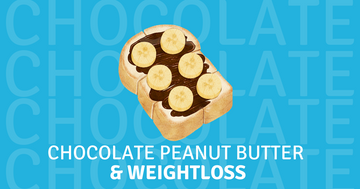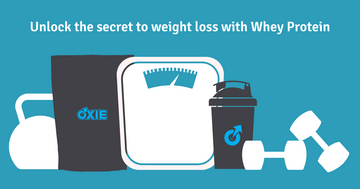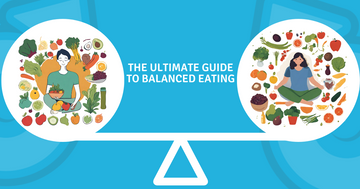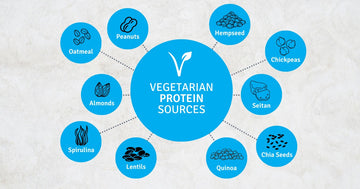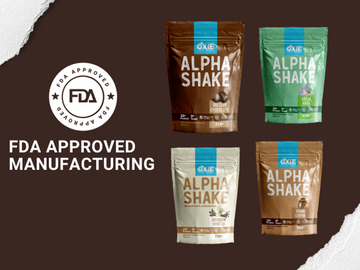If you’re trying to lose weight, you’ve probably been told to stay away from sweets and indulgent snacks. But what if you could have a delicious treat that was actually good for your health?
Chocolate peanut butter is an incredibly popular snack in the market today, but is it really good for weight loss?
In this article, we’ll take a look at the potential health benefits of consuming chocolate peanut butter and see if it can truly help you reach your dieting goals. Read on to learn more!
Which peanut butter is good for weight loss?
There are numerous varieties of peanut butter available, and not all of them are the same.
Some have a higher fat and calorie content, whereas others have a higher sugar and carbohydrate content, So which one actually beneficial for losing weight?
Studies have proven that regular nut eaters may have increased resting energy expenditure, people who burn more calories may do so during periods of inactivity.
The high-calorie, high-protein content in Peanut Butter can help make people feel satiated for longer which in turn helps make people less prone to over consume calories than when they are unsatisfied, despite having a lot of calories peanut butter may actually prevent overeating in the long run.
Considering the high protein content of nuts, such as peanuts and peanut butter, these findings imply that they may be a healthy food choice for those trying to lose weight.
It relies on your goals, Sequentially you might want to select a peanut butter with fewer calories and fat if you're attempting to lose weight. However, if you're aiming to gain muscle, you should choose a protein-rich peanut butter.
Here are a few different types of peanut butter, and their calorie and fat content:
Natural Peanut Butter:
Natural organic peanut butter is defined as having no added components, such as binding oils or trans fats or sugar. The oil in peanut butter may naturally split and float when it is
placed on a shelf due to gravity and no artificial binding agents used. Before ingesting this form of peanut butter, you must stir the floating natural peanut oils.
This type of peanut butter is made from peanuts that have been roasted and ground up. It doesn’t contain any added sugar, salt, or oil. Natural peanut butter is a good choice for weight loss because it’s low in calories and fat. One tablespoon contains about 94 calories and 8 grams of fat.
Crunchy Peanut Butter:
Crunchy peanut butter is a type of peanut butter that contains pieces of whole roasted peanuts mixed in with the spread. This provides a crunchy texture and nuttier flavour compared to creamy peanut butter, which is smooth in texture and has a creamy consistency. Crunchy peanut butter is often favoured by those who enjoy a bit of texture in their spread and is a popular ingredient in various recipes such as cookies, sauces, and dips. Its macros are similar to natural peanut butter.

Flavoured Peanut Butter:
Flavoured peanut butter is a type of peanut butter that has additional flavours or ingredients
added to the traditional peanut spread. This could include various sweet or savoury flavours such as chocolate, maple, honey, cinnamon, and even some spicy varieties. Flavoured peanut butter provides a unique twist on the classic spread and is often enjoyed as a spread on toast,
crackers, or as a dip for fruit or veggies. Some popular flavoured peanut butters include chocolate-covered peanut butter, honey peanut butter, and spicy sriracha peanut butter.
Whey Protein Peanut Butter:
Whey peanut butter is a type of peanut butter that has whey protein added to it. Whey protein is a type of protein that is commonly used in sports nutrition and meal replacement
products due to its high protein content and quick digestion. By adding whey protein to peanut butter, manufacturers aim to create a product that offers both the taste and texture of traditional peanut butter, but with the added benefits of increased protein content. This type
of peanut butter is often marketed towards athletes, bodybuilders, or people following a high- protein diet who are looking for an easy way to increase their overall protein intake.
When should I eat peanut butter to lose weight?
There are approximately 80 calories in one tablespoon of peanut butter. For a 2-ounce
serving, that’s 20 calories. Peanut Butter is a high-calorie food. This makes it fairly difficult to add to a low-calorie diet or consume as a snack food, as it contains more calories than many fruits do.
To include peanut butter in your weight loss diet, it is important to limit portion sizes and choose a natural, unsweetened variety. You can also try combining peanut butter with other low-calorie foods, such as fruits or vegetables, to dilute its calorie density.
It is also important to remember that weight loss is about balancing energy intake and expenditure, so along with incorporating healthy foods into your diet, it is also important to engage in regular physical activity to support weight loss and maintain a healthy weight.
So Peanut Butter can be consumed as a snack anytime. It can be eaten on its own or used
in recipes. It can also be added to oatmeal, smoothies, and other foods. It can be eaten as a snack anytime, but is especially beneficial before bedtime due to its high protein content. The 16 g of protein in one spoonful of peanut butter is helpful for enhancing our metabolic health and promoting muscle growth.
Is chocolate peanut butter healthy?
Chocolate peanut butter is highly nutritious. This pairing is high in protein and healthy fats. On the other hand, it is also high in sugar, which is why this combination is not recommended as a low calorie weight-loss snack.
Chocolate peanut butter is also a good source of magnesium and potassium. These minerals help to regulate the amount of fluid in your body and maintain normal blood pressure levels. They can also help to reduce the risk of high blood pressure.
Besides these minerals, this peanut butter combination is also rich in vitamins A, B, D, E, and B-6. These vitamins help to promote healthy skin and a strong immune system. They can also improve your mood and metabolism.
Both peanuts and chocolate contain fiber, which helps regulate digestion and promotes feelings of fullness, furthermore chocolate is rich in antioxidants, which can help protect the body from damage caused by free radicals and reduce the risk of certain diseases.
However you should be careful about which chocolate peanut butter you choose. Some chocolate peanut butters are loaded with sugar and additives, so make sure you choose a chocolate peanut butter with minimal added ingredients. A healthy chocolate peanut butter is one that is made from natural ingredients and contains no added sugar.
The peanut butter itself is also unsalted, so you can control your sodium intake in this recipe. If you're looking for a healthier peanut butter alternative, OG Protein peanut butter is a good choice. It's not nearly as salty as other brands, and it has a mild peanut flavor that's nice and sweet.
What to eat with peanut butter to lose weight?
Losing weight can be aided by peanut butter. Its fiber and protein content helps you feel satisfied for longer. Additionally, peanuts provide monounsaturated and polyunsaturated fatty acids, which are good for you. These fats lessen the chance of becoming obese when included in a balanced diet.
There are some important considerations to make when trying to lose weight. Your body
needs certain nutrients to function normally, therefore you must first ensure that you are consuming a healthy and balanced diet. If you're attempting to lose weight, adding peanut butter to your diet can help because it's a wonderful protein source and good fats. When incorporating peanut butter into your diet, there are a handful of factors to bear in mind though.
First, you want to make sure that you are choosing a quality peanut butter. Look for brands that have no added sugar or salt and are made with 100% peanuts. Also, check the calories per serving and choose a peanut butter that has around 200 calories or less per serving.
The next step is to plan how you're going to include peanut butter in your diet. Consuming peanut butter with meals that are lesser in calories and fat is what you should concentrate on if you want to lose weight.
The following are some excellent alternatives: carrots, apples, celery sticks, full grain breads or crackers. For an additional protein and flavour boost, you may also stir peanut butter into
your porridge or smoothie. Just be mindful not to overindulge since consuming too much peanut butter can result in weight gain.
It's ironic that losing weight might be aided by a high calorie food like peanut butter, which has 180 to 210 calories per serving. However, peanut butter's superb ratio of 8 g of protein and 8 g of fibre per serving energises you and prolongs your sensation of fullness, causing you to eat less
overall. Additionally, the wonderful compound piceatannol found in peanut butter aids the body in preventing the maturation of immature fat cells.
Is chocolate peanut butter good for weight gain?
For a variety of reasons, peanut butter is a common ingredient in the diets of bodybuilders
and fitness aficionados. Despite the fact that calorie needs will vary depending on stature, degree of exercise, and metabolism, the usual daily requirement calorie intake for women is between 1,600– 2,400 calories and for males, it can reach 3,000 calories. Adult men who are active should consume a maximum of 3,000 calories daily, whereas active women should consume up to
2,400 calories daily. Because of its high calorie count, peanut butter is a simple approach to enhance calorie and unsaturated fat intake. Additionally, chocolate nut butter contains protein, which is necessary for mending and regenerating muscles.
Hence, Chocolate peanut butter can be an effective and efficient way of helping people acquire weight. Protein and good fat from peanut butter can make you feel satisfied for longer and aid in weight gain. Sugar and calories found in chocolate can cause weight gain if ingested in excess. However, chocolate peanut butter may be a tasty and healthy component of a balanced diet when used in moderation.
Is peanut butter bad for weight loss?
Peanut butter can be a nutritious addition to a weight loss diet when consumed in moderation as part of a balanced diet. It is a source of healthy fats, protein, and fiber, which can help keep you feeling full and satisfied, preventing overeating and snacking on unhealthy foods.
However, peanut butter is also calorie-dense, meaning it provides a relatively high number of calories in a small serving size. Consuming too much of it can contribute to weight gain. It's important to portion control and stick to recommended serving sizes, which is typically 2 tablespoons per serving.
In addition, the type of peanut butter you choose can also affect weight loss. Look for peanut butter that is made with just peanuts and salt, without added sugars or oils. These
ingredients can increase the calorie content and decrease the nutritional value of the peanut butter.
In conclusion, peanut butter can be a healthy addition to a weight loss diet when consumed in moderation as part of a balanced diet. It is important to choose a quality peanut butter, portion control, and consume it as part of a diet that is balanced and low in overall calories.
And if we talk about chocolate peanut butter it might not be the ideal option for individuals trying to lose weight, despite the fact that it may be tasty, the high calorie and fat content of peanut butter might lead to weight gain. In addition, additional sugar, which is frequently found in peanut butter, might contribute to weight gain. So, if you're attempting to lose weight, it's recommended to avoid or consume less chocolate peanut butter.
Does eating peanut butter before bed help lose weight?
Although peanut butter is extremely high in fat and calories, it can actually help you lose weight if you eat it before bed.
Eating peanut butter before bed is not guaranteed to help with weight loss, but it could potentially aid weight management when consumed as part of a balanced diet.
Eating peanut butter before bed can help your body process the high amount of fat that you consume before going to sleep.
So how does eating peanut butter help you lose weight? Let’s take a look:
Eating peanut butter before bed can help increase your resting metabolism rate and burn fat and calories Furthermore, having a snack of high fat foods before bed can also help you lose weight. It is important to plan your meals in advance and consume high protein foods before going to bed.
Some high protein foods are peanut butter, salmon, tuna, tuna fish, chicken breast, almonds, cashews and black beans. Peanut butter is also a healthy food that can help you lose weight since it is loaded with protein, which is essential for building muscle mass and burning fat.
In fact, a study conducted at the National Institutes of Health shows that eating protein before bed can increase metabolic rates by up to 27 percent! So eat plenty of the stuff before bed to reap the full benefits.
Eating peanut butter before bed can also be beneficial for muscle recovery and growth, as the protein content in peanut butter can help repair and build muscle tissue during sleep.
However, it's important to note that weight loss or weight management is primarily a result of creating a calorie deficit, which means consuming fewer calories than you burn through daily activities and exercise. Eating peanut butter before bed is not a magic solution for weight loss, and it is still important to maintain a balanced diet and engage in regular physical activity.
In conclusion, consuming peanut butter before bed can be a healthy addition to a balanced diet and potentially help with weight management, but it is not a guarantee for weight loss.
Conclusion
Admit it, peanut butter can solve just about every problem. There's something peculiar about the way it melts and adheres to that same roof of the mouth. It is a fallacy that peanuts make you fat.
Indeed, peanuts have a high fat content, but it's the healthful monounsaturated and polyunsaturated variety, making peanut butter nutrient-dense.
In fact, peanut butter provides all three macronutrients—carbohydrates, protein, and fat—in a single dose.
Although, calorie for calorie, it may not be as healthy as spinach or broccoli, it is a fantastic source of vitamin E, vitamin B3, vitamin B6, folate, magnesium, copper, and manganese.
Additionally, it has trace levels of vitamin B5, potassium, zinc, iron, and selenium. According to studies, peanut butter helps to maintain heart health and slow down cellular ageing. It's the only one item that can work as both a foodie and a dieter's best friend and that's how it makes a special place in every house.

